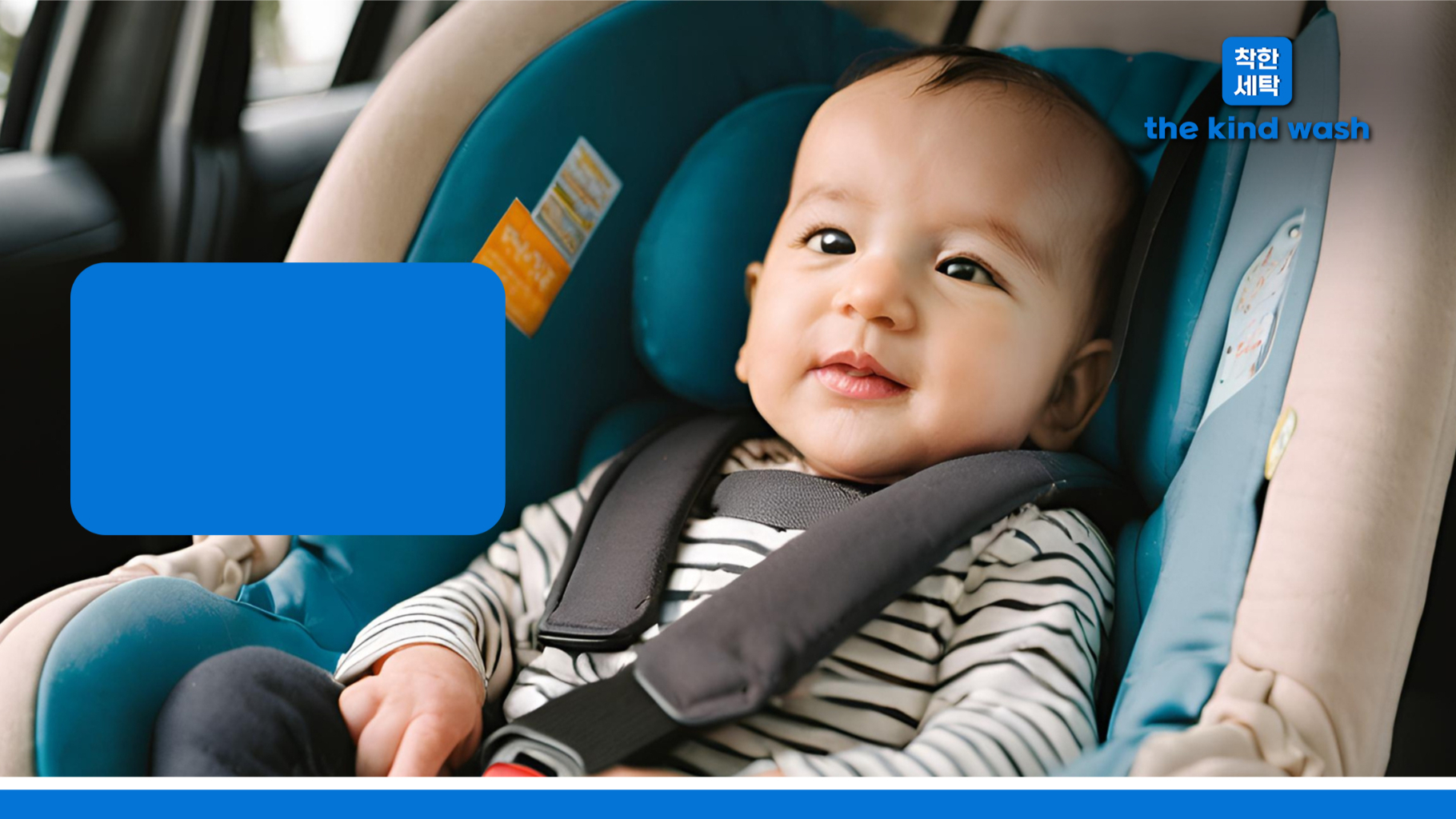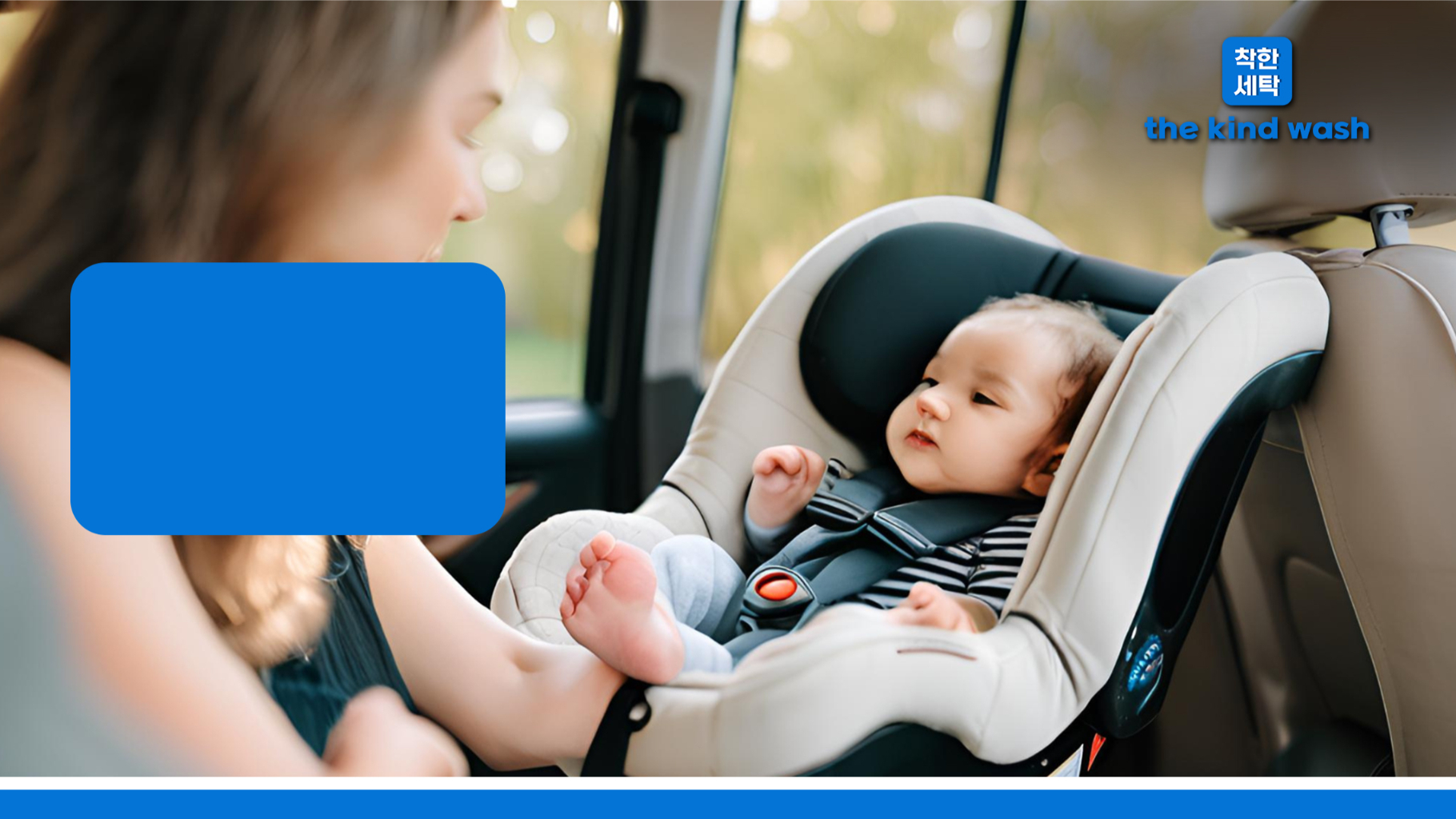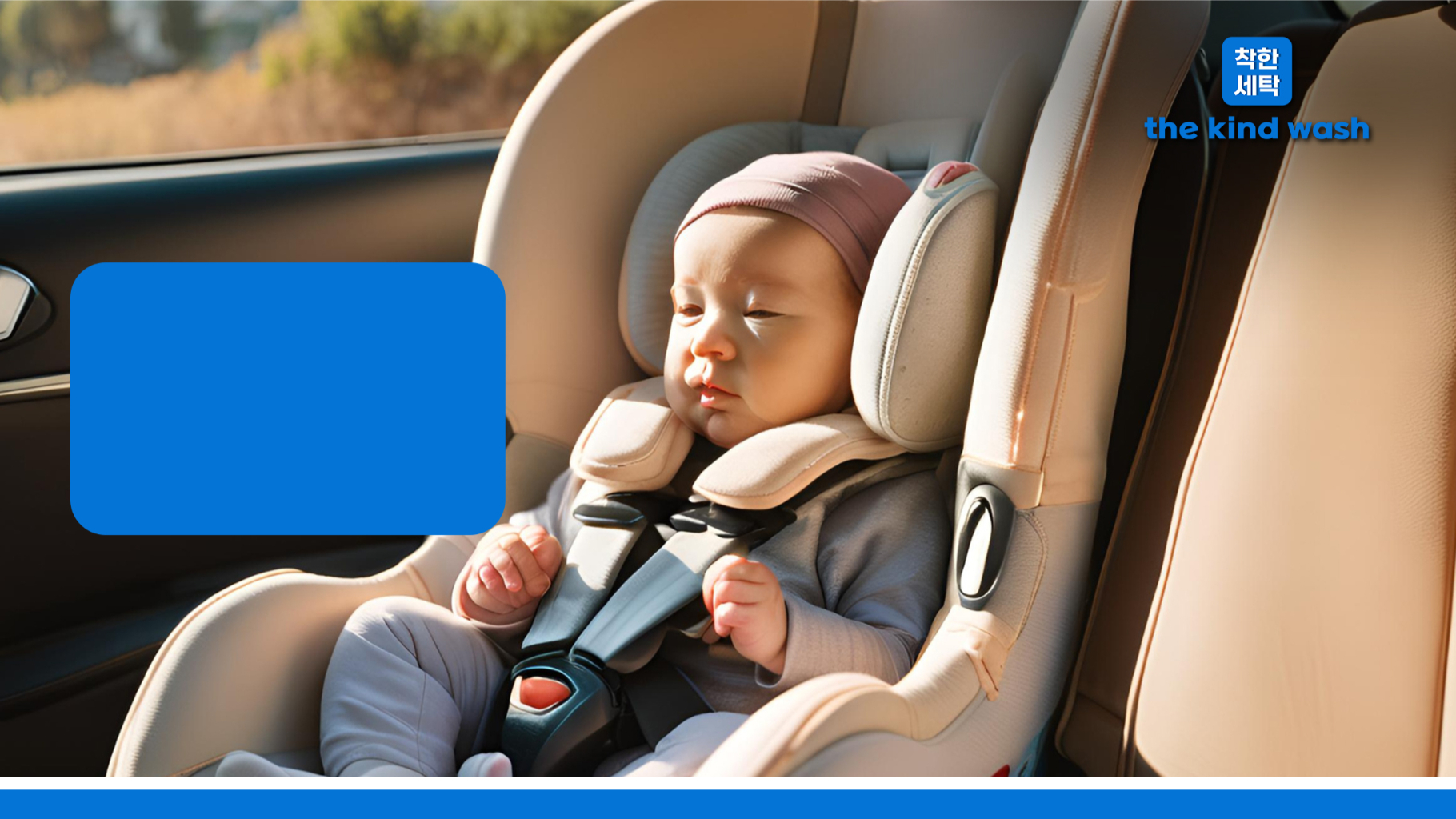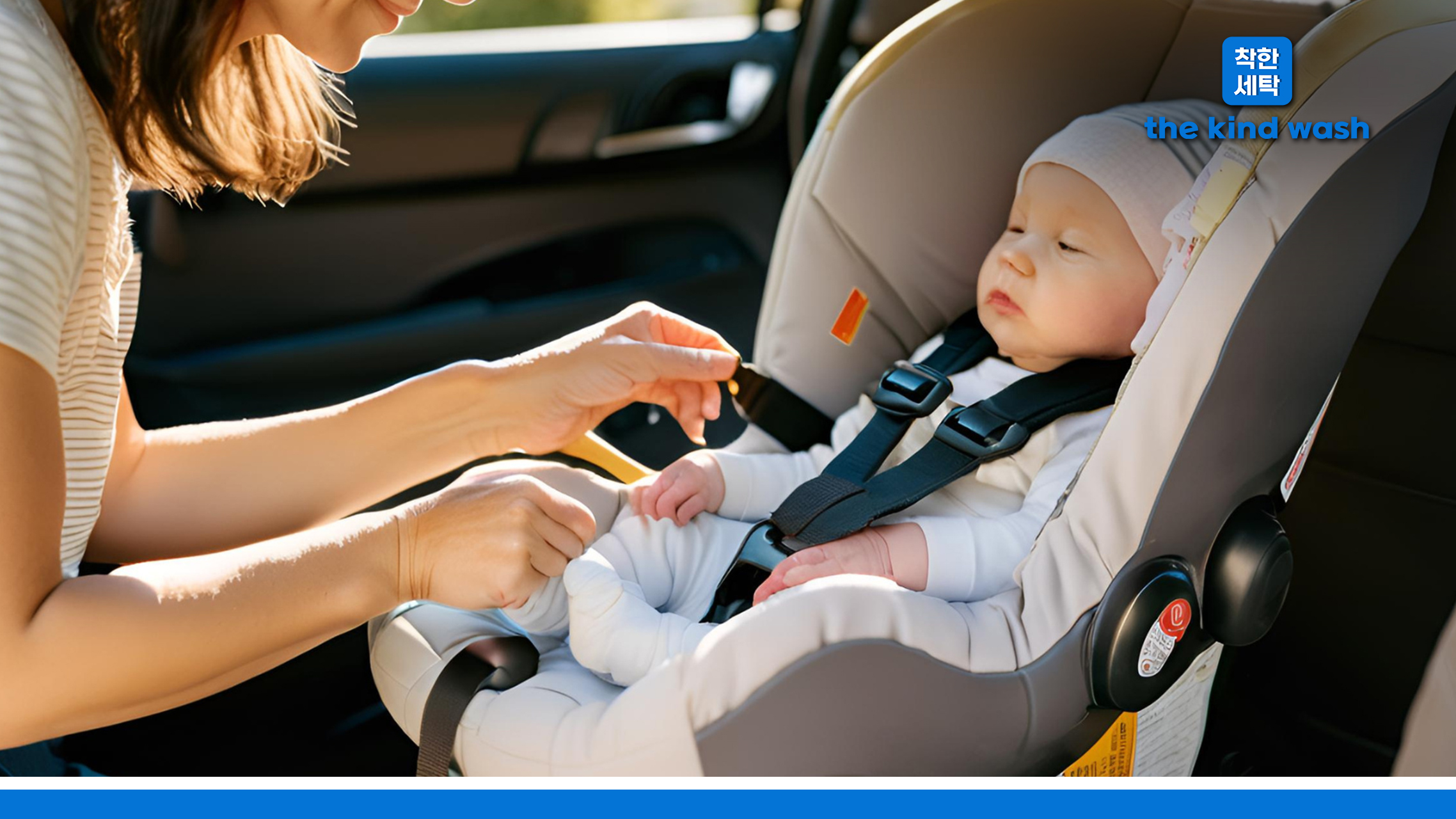As parents, the most important thing for all of us is keeping our babies safe and sound. The baby car seat is one of the most vital safety gears we can invest in this travel journey. A high-quality baby car seat may look invincible, but really it has an expiry date. Here is the explanation from the kind wash.
Most parents are unaware that cleaning their baby car seat is as lifesaving as how they choose the baby car seat! Since good baby car seats can last longer, offer better protection, and save you the trouble and expense of replacing them prematurely, enabling you to care for them is imperative.
Picture the peace of mind that comes from knowing each time you strap your child in, they are in a seat that is not just designed to protect but functioning at peak performance due to consistent maintenance.
Proper maintenance isn’t just about cleaning spills or tightening straps; it’s about safeguarding the very equipment designed to protect your little one from harm. the kind wash offers professional cleaning services for baby car seats.
Here the kind wash outlines the critical parts on how to use your baby car seat for as long as you can. We are going to cover everything you need to know to keep your car seat this trusted travel companion from your family, from reading expiration dates to minor signs of wear and tear all the way to when to throw up your hand and get a new seat.
And remember, at the end of the day, nothing else trumps the safety and comfort of your child.
Understanding Car Seat Expiration Dates

Many parents are shocked to discover that, like food or medicine, baby car seats expire! A baby car seat might appear perfectly well after years of use, but the materials it is made from”plastic, foam, and metal also can degrade.
These are the materials you need to ensure that the structure is strong enough and absorbs impact so that your child is not injured in the event of a crash. However, these components can be compromised with time because of exposure to heat, cold, and normal use, and therefore, once a baby car seat has expired, it may be far less effective at protecting your child.
Most baby car seats have a shelf life of somewhere between six and ten years since manufacture, as determined by the manufacturer. This information can generally be found on a label at the bottom of the seat or on the plastic shell somewhere.
You need to verify this important date as safety regulations change and older baby car seats are no longer compliant. Similarly, replacement parts or other accessories for older models may not be available anymore, which means you have limited ways to repair damages.
But then, why are these expiries so important? The answer lies in the safety science. The technologies and know-how surrounding baby car seat design are constantly evolving, and the manufacturers are also introducing improved designs and materials that enhance the protection offered in the event of a collision.
You may also be missing out on improved safety features, as using an expired baby car seat means you are still using technology that may not be as efficient as the new ones, which have additional features. So instead of talking age, talk about proper seats and safety standard rides for your progeny.
Regular Inspections and Maintenance

Continuing with regular inspection and maintenance is the best way to ensure the safety and function of your baby’s car seat for its life. Baby car seats take their fair share of abuse just like any other safety product, whether it be daily commutes to and from drop-off lines, work, or the occasional road trip.
The straps and buckles and even the plastic bits might exhibit signs of stress after a while. Regularly checking your baby car seat allows you to find minor issues before they turn into larger ones that could put your child at risk.
Start by checking the harness straps for fraying, twistiness, and wear. The role of the harness cannot be emphasized enough in keeping your child safely strapped in, so even the slightest damage may pose a grave risk if an accident occurs.
Ensure that all buckles are clicking securely and that the chest clip is working properly. If any of the parts feel loose or do not move freely or easily, contact the manufacturer for replacements.
Besides the harness, also examine the plastic shell of the seat. The right infant baby car seat might be a different model than what you had previously during your research. Check for cracks, warping, or fade, particularly if the seat has been subjected to extreme temperatures.
But when plastic is exposed to direct sunlight for a long time, it tends to become weak and less capable of absorbing impact when a crash occurs. Minimize the baby car seat sun exposure as best as you can, and when not in use, put it somewhere cool and dry to prolong its lifespan.
Regular inspections help you spot these vulnerabilities early, giving you the chance to fix or replace parts before they fail.
Lastly, always follow the manufacturer’s cleaning and maintenance guidelines. While it’s important to keep the baby seat clean for comfort and hygiene, improper cleaning techniques, like using harsh chemicals or soaking the seat, can damage the materials and affect its structural integrity.
For matters of cleanliness, let the professionals handle it, a kind-hearted laundry service, a professional cleaning service that specializes in baby equipment and has guaranteed service.
Avoid using anything more aggressive than soap and water for spot cleaning, and take your seat to the pros if it needs more than that. By following these suggestions, you can make sure your baby’s car seat remains in tip-top condition, keeping your child safe every time he or she travels in the car.
Dealing with Minor Accidents or Crashes
A baby car seat can be damaged with a minor bump as well. Then, even the safest of drivers has accidents, and it is important that your car seat does its job of providing your child with the necessary protection.
To keep your baby from absorbing the entirety of a crash, baby car seats are built to help lessen the impact of a collision. However, some of their protective abilities can be reduced after a crash, even if there is no visible damage.
Knowing how to deploy a baby car seat after a crash, no matter how minor, is the first step to keeping your baby safe.
Even if a baby car seat looks perfectly fine post-crash, there is a chance that the material has suffered some internal stress, which may mean it simply won’t perform when you need it most to keep your baby safe in the future.
Other manufacturers suggest a baby car seat should always be replaced, even in a minor accident. This is because the energy-absorbing material inside the seat may have weakened from the impact.
For peace of mind, always check your baby car seat manual and follow any additional guidance regarding post-crash inspection or replacement. It’s always better to err on the side of caution when it comes to your child’s safety, especially if the baby car seat is an older model.
If you’re unsure about whether to replace a baby car seat after a minor crash, contact the manufacturer or consult a certified passenger safety technician. They can advise you on the next steps depending on how badly the seat was damaged in the crash.
Some car insurance covers the placement of infant car seats after an accident, so check your policy to avoid financial burdens so you can focus on your child’s safety.
Your child seat is one of the most important pieces of safety equipment for your child. Do never use a damaged car seat after any minor accident. Make sure your child is safe above all else.
For keeping your kids’ car seats always clean and hygienic, you can think of a professional deep cleansing service. Similar to the kind wash, the kind wash caution cleansing approach ensures a secure space for your kid to repose in.
When to Finally Replace Your Car Seat

It’s important to know when to finally replace your baby car seat for good. Though you can prolong the life of a baby car seat with good maintenance, they all have an expiration date.
Due to use, expiration, or a crash, there’s a threshold after which it’s no longer safe to keep using the seat with your child.
Identifying these warning signs will let your child stay safe in the best gear possible.
The most obvious reason to replace a baby car seat is obviously when it has expired. Plastic and foam deteriorate over time and can affect a seat’s potential to absorb an impact during a crash.
The seat may look fine, but it may no longer offer the protection you expect. Also, safety standards and technology evolve, so an old baby car seat may not have all the safety components found in more recent car seats. And if your baby car seat is out of date, it is time to buy a new one that complies with modern safety regulations.
The other thing is damage to daily life use or in an accident. Even if your baby car seat appears fine, if you have been in a crash, even a low-speed bump, your child seat is no longer safe as it may be structurally compromised.
Small cracks, compromised harnesses, or weakened impact-absorbing materials can severely reduce the seat’s effectiveness in future accidents. In such cases, most manufacturers recommend replacing the seat, even if the damage isn’t visible to the naked eye.
This is especially important for your peace of mind, knowing that your child is traveling with the highest level of protection.
When your child is older, their proportions will further determine with you when it is finally time to upgrade the car seat. Every seat has a maximum/height and weight limit, and if your kid exceeds those, then your child is no longer safe by using it.
You will want to consult your baby car seat specs regularly, making sure your child still meets the recommendations. If the seat has been outgrown, they must upgrade to the next appropriate size.
In the end, it’s always best to prioritize safety over the sentimental value, or the cost you paid for a baby car seat, you may be holding onto. Your child will be using the best-designed and safest gear when it comes time for a new seat.
By remaining alert and understanding exactly when to transition, you make sure your kid is as secure as can be, whenever you choose to start your drive.
Conclusion
Extending your baby car seat’s life is more than just a way to be cheap; it means your child is safe every time they are strapped in. Knowing the expiration dates, conducting regular inspections, and that the seat needs replacing after a crash will help keep your car seat safe as long as possible.
With proper care and maintenance, you can ensure that the seat remains to meet the significant safety standards it was designed to meet when it was new.
Signs of wear and tears can often go unnoticed as we get busier. But inspecting your baby seat from time to time and storing away correctly might be in your favor when a collision happens.
These minor but essential measures go a long way in keeping your greatest asset secure and giving you comfort with every trip, including the short one or the long drive.
Finally, timing how long to keep a baby car seat is key with minor mishaps or aging out. Using a seat that may not be providing the protection needed for your child is not a road worth traveling.
Keep in mind that baby car seats are a temporary instrument that complements the safety of your child at different stages of growth, so do not hesitate to upgrade when required.
So, going ahead, add baby car seat maintenance to your parenting to-do list. As a result, it makes each drive you take as expedient as it is safe.
Your kid’s safety is paramount, and taking these precautions is one of the simplest ways to keep them safe on the road.
F.A.Q
Why is it important to maximize the lifespan of your baby car seat?
Your child’s safety is the main reason. A good baby car seat ensures the best protection during a crash and needs to be in top condition.
How long does a typical car seat last?
Usually, baby car seats expire six to ten years after the date of manufacture, but always check with the manufacturer. Owning a car seat comes with plenty of benefits, but one of the responsibilities with it is to remember to check its expiration date.
Besides expiration, what other factors might require replacing a car seat?
The daily wear and tear or accidents can weaken the car seat. Even small cracks or degraded materials can drastically weaken its ability to provide safety.


